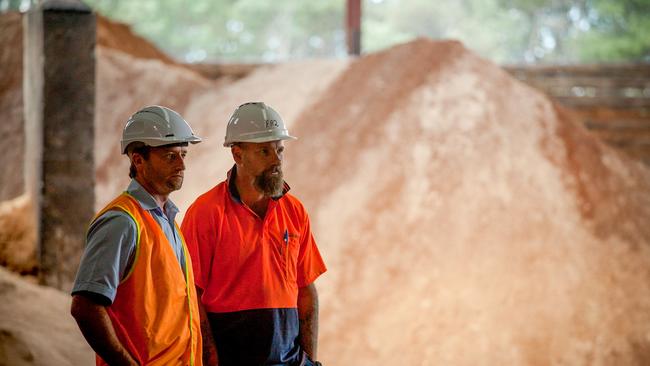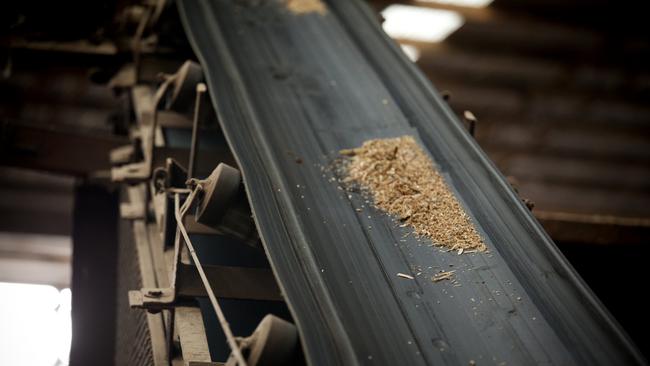Future Tasmania: State’s new biomass strategy to harness organic waste
The state government will invest $10.1 million to upgrade ageing fossil fuel boilers at 20 schools, hospitals and correctional facilities across Tasmania as part of its new bioenergy strategy.

Tasmania
Don't miss out on the headlines from Tasmania. Followed categories will be added to My News.
The state government will invest $10.1 million over four years to replace and upgrade ageing fossil fuel boilers at 20 schools, hospitals and correctional facilities across Tasmania as part of its new bioenergy strategy.
Bioenergy, which comes from biomass, is energy produced from organic matter, including agricultural, industrial and forestry waste.
Energy Minister Guy Barnett said Tasmania was sitting on a grievously untapped resource.
“We sit on a huge untapped energy potential for bioenergy in Tasmania, with more than 1.3 million tonnes of solid organic waste and residues and 7.8 million tonnes of liquid organic waste and residues produced in Tasmania each year from agriculture, industry, municipal and forestry sources,” Mr Barnett said.
“Bioenergy can produce a wide variety of energy outputs, including electricity, heat, fuels such as methane, and transport fuels for cars, boats, and planes.
“As biomass can be regrown sustainably, bioenergy is globally recognised as renewable energy.
“It can displace fossil fuels in almost every market and reduce greenhouse gas emissions.”
Mr Barnett cited the example of Sweden as a global leader in bioenergy. He said that bioenergy accounted for more than one-third of all energy used and provided 60 per cent of that country’s district heating needs.

To kickstart its new ‘Bioenergy Vision’, the state government said it would convert fossil fuel boilers at 20 sites, including at schools, hospitals and correctional facilities, into biomass boilers, at a cost of $10.1 million over four years.
The increasing usefulness of bioenergy as a way of reducing costs and emissions has already been recognised by several Tasmanian firms.
They include Austral Bricks at Longford, which uses sawdust to heat the brickmaking kiln, Cascade Brewery, which displaced natural gas with biogas generated through installation of an anaerobic digester, and Timberlink, which burns sawdust from the timber milling process that would otherwise need to be disposed of or sold to produce heat energy for the facility to dry sawn wood.
Austral Bricks has been carbon neutral since 2014 and uses the sawdust residue from most of Tasmania’s regional sawmills to heat the kilns.
Although the state government is yet to release its final bioenergy strategy, a consultation paper on the draft strategy noted that “most stakeholders agreed that it was not clear how bioenergy fits within the government’s broader energy strategy”.
“Stakeholders suggested that there is no clear pathway for the deployment of bioenergy and uncertainty around the role government sees bioenergy playing in meeting our future energy needs,” the paper said.
“Given the many renewable energy generation, there is limited direction on how it will fit within Tasmania’s renewable energy mix.”





